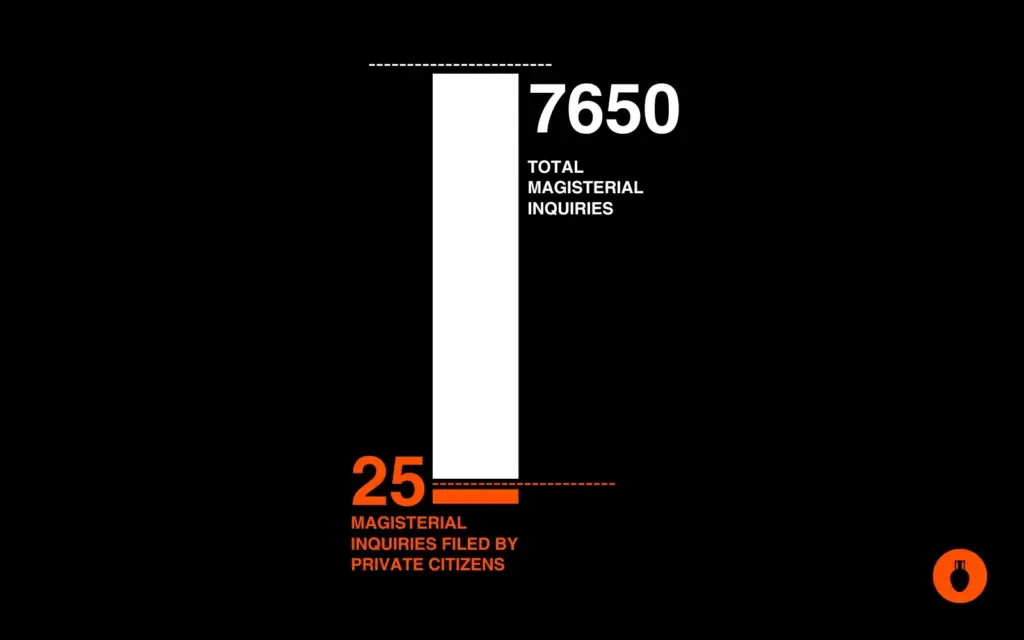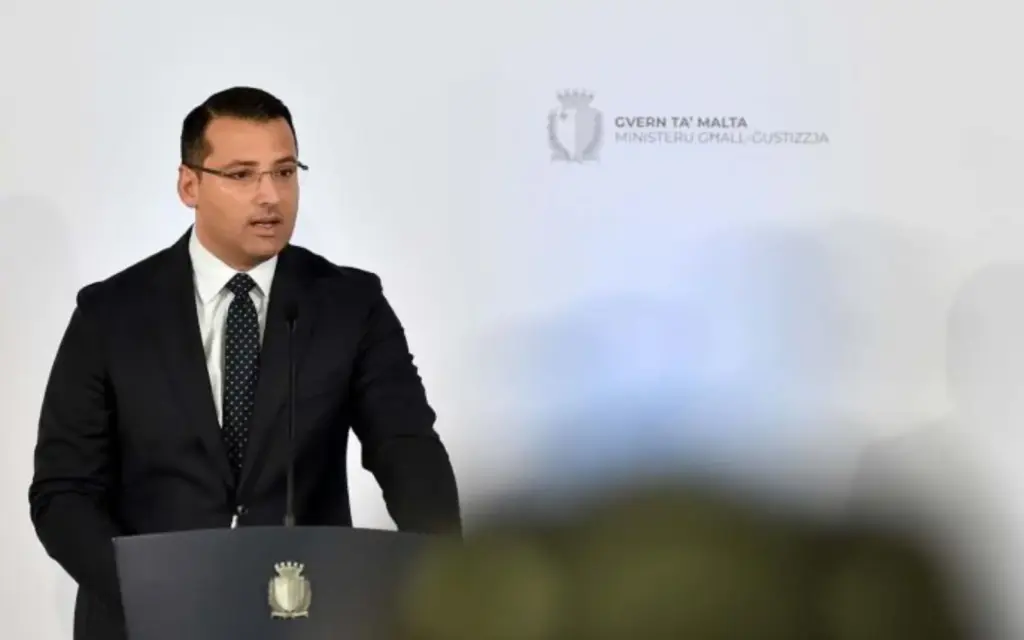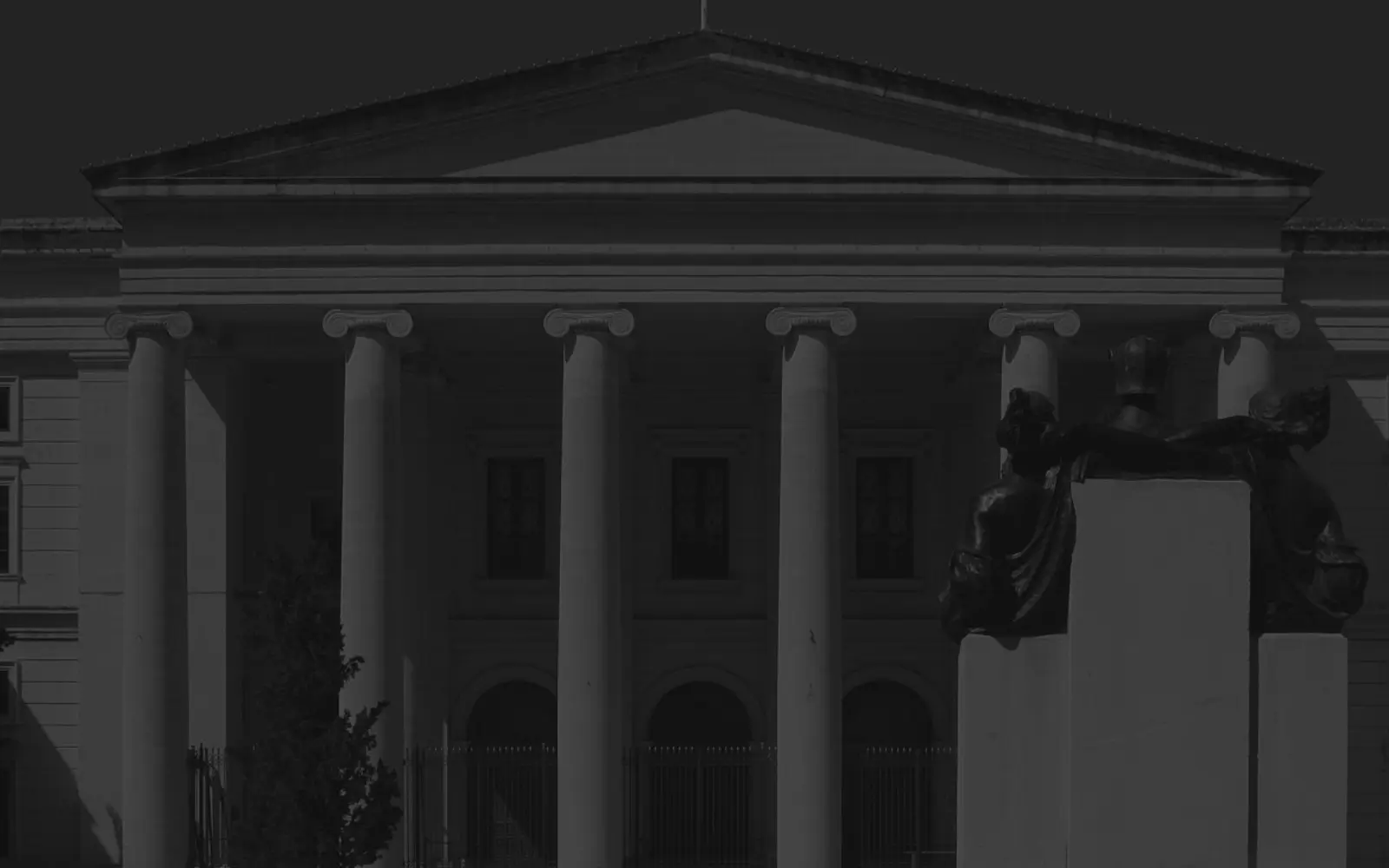By Sabrina Zammit
Magisterial inquiries have been one of Malta’s few avenues for citizens to seek justice and hold those in power accountable. A new bill threatens to close that door – and recent data shows private citizen-filed inquiries account for just 0.3% of all magisterial inquiries.
In response to a series of parliamentary questions by MP Amanda Spiteri Grech, Justice Minister Jonathan Attard revealed that only 25 magisterial inquiries were initiated by private citizens between 2017 and 2024, a fraction of the 7,650 carried out by magistrates & initiated by authorities.
Private citizen-filed inquiries have led to major investigations and, in some instances, criminal charges into significant scandals, including the VGH/Steward case, 17 Black, the Panama Papers, Electrogas, and the Mozura wind farm deal in Montenegro.
Bill 125 would drastically limit that ability. It has courted significant controversy and was introduced amid fresh requests for inquiries into Prime Minister Robert Abela’s cabinet members. Critics say that the bill has been rushed through parliament and that the government has been unwilling to engage in public dialogue.
A vote on the second reading of the Bill will be taken later today. The committee stage will follow, and a final vote will be taken after its third and final reading.

Under the proposed law, citizens must present evidence to the police, not the magistrate, and follow stricter guidelines. This would undermine accountability, especially if authorities fail to act.
The Bill removes the ‘reasonable suspicion’ standard, introduces a stricter evidentiary requirement, and places magisterial inquiries under the supervision of the Attorney General, which could compromise judicial independence.
The government argues that the Bill aligns with recommendations made by the Venice Commission, which stressed it should “not abandon Malta’s legal traditions but evolve to provide more effective checks and balances than those currently in place.”
PL MEP Alex Agius Saliba and Minister Attard travelled to Brussels for a series of meetings, including former LIBE Committee Chair Juan Fernando Lopez Aguilar. Agius Saliba has reportedly begun circulating a government-produced ‘fact sheet’ about Bill 125.
The Daphne Caruana Galizia Foundation has urged the European Parliament’s Socialist and Democrats (S&D) group to retract their support for the proposed reform.

Bill 125 Slashes Citizens’ Right to Seek Justice
Besides eliminating direct citizen petitions and imposing stricter evidentiary requirements, Bill 125 mandates individuals to wait 6 months for police inaction for an initial request for a magisterial inquiry.
A two-year deadline is being introduced, after which all collected evidence would be passed onto the Attorney General, regardless of the inquiry’s status. Given the court’s long-standing issue with delays, this could result in a premature conclusive status for incomplete investigations.
Another major reform is the introduction of penalties for abuse. If a magistrate determines that the inquiry initiated by a citizen against the accused was “unfounded, frivolous, vexatious or abusive of the judicial process”, the same citizen would be held responsible for covering costs.
These expenses could run into the millions—for context, the inquiry into Egrant cost over €1.2 million, while the Vitals exceeded €10 million.

Leave a Reply